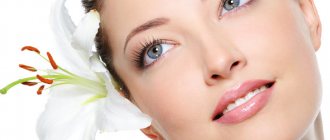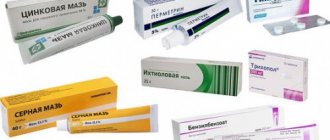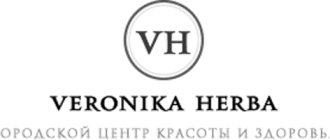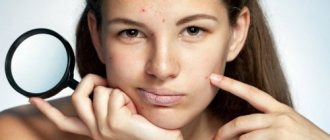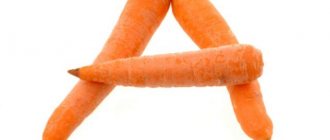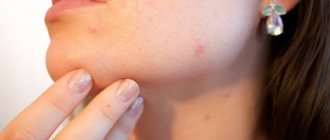Roaccutane: acne treatment in our clinic
In exceptional cases, for severe forms of acne, we prescribe Roaccutane, a systemic drug that is a derivative of vitamin A.
Our clinic has been working with Roaccutane for more than 24 years. Over the years, more than 1.5 thousand acne patients have been treated. Currently, Roaccutane for internal use is one of the most famous drugs in the world for the treatment of the most complex and severe forms of acne. This is due to its high efficiency and lasting effect. Timely administration of Roaccutane is an important point in the prevention of scars, spots, and marks after acne.
The drug is economical, the price of Roaccutane is much cheaper than the cost of long-term, external only acne treatment from a dermatologist and cosmetologist. Reviews of Roaccutane from patients who have undergone treatment with the drug and followed the recommendations of their attending physicians are always very positive. Long-term, lasting effect in 90% of patients.
Our experience with Roaccutane over the years has been presented at scientific conferences, publications in dermatological and cosmetology journals.
Roaccutane: acne treatment in our clinic Read more…
We present to your attention our article on the features of treatment of severe acne with Roaccutane, presented in the scientific journal “Clinical Dermatology and Venereology”, 1, 2003.
There are also artificial analogues of vitamin A - adapalene and azarotenic acid.
How do retinoids work?
Dermatological centers are constantly studying the properties of retinoid preparations, providing an assessment of their effectiveness. It was found that topical retinoids (forms for external use) contribute to the regression of inflammatory papules, reduce the external manifestations of acne, and activate local immunity. Systemic retinoids (oral forms) normalize sebum production, facilitate its secretion, eliminate hyperproliferation, and reduce the population of propionobacteria in acne lesions.
All retinoids have the following effects to one degree or another:
- Anti-inflammatory;
- Healing;
- Immunomodulatory;
- Sebostatic.
The use of retinoids for acne is based on their ability to reduce sebum production and speed up the exfoliation of dead skin cells. As a remedy for wrinkles, vitamin A-based products have proven themselves to be excellent thanks to the proven effects of smoothing the skin's microrelief, increasing its elasticity, stimulating its own collagen and lightening age spots. The production of stem keratinocytes increases, and the required level of moisture is maintained in the deep layers of the dermis, as a result of which the skin is rejuvenated “from the inside.”
Minoxidil for hair
Androgenetic alopecia most often develops in the stronger sex and leads to male-pattern hair loss. This is due to the peculiarities of the hormonal background, in which the endocrine system produces in excess quantities the male sex hormone - dihydrotestosterone, which negatively affects the quality of hair, causing hair loss, thinning and slower growth.
It is worth noting that Minoxidil is mainly suitable for men. For representatives of the fair sex, androgenic type baldness is very rare, in exceptional cases. And as an option, you can use 2% Minoxedil. The big advantage of the drug is the absence of odor.
Frequently asked questions about Minoxidil:
Composition of Minoxidil
Available in spray or foam form. Active ingredient concentration: 2–15%. The drug is suitable for any hair shape, even the most complex hairstyles.
The most popular brands of minoxidil on the market are Rogaine and Alerana.
Rogaine consists of minoxidil, purified water and a combination of citric and lactic acids. Other components include stearic alcohol and glycerol. Alerana, in addition to the usual minoxidil and purified water, contains ethyl alcohol and propylene glycol.
Analogs
There are situations when there is an allergic reaction to one of the components of the drug. Then, to treat hair loss, the doctor may prescribe other medications with a similar effect. Active analogues of minoxidil are preparations based on nanoxidil (Spectral DNS), aminexil (Vichy Dercos) and stemoxidine (Vichy Dercos Neogens).
To enhance the effect, in addition to taking medications, the doctor may recommend taking vitamins and microelements, the composition of which is selected specifically for hair, and not for general action. Also a good recommendation is mesotherapy and PRP/Price
The cost of the drug directly depends on the percentage of minoxidil in its composition. The most popular solutions are those containing 2% and 15% minoxidil. Accordingly, the first option will cost $13–15, while a five percent solution will cost $18–50.
The drug belongs to the conditional category “above average cost”, and due to the active rise in price of the dollar against the Russian ruble in recent days, its purchase may feel even more expensive. However, the price of the drug is completely justified, since minoxidil is one of the most effective substances for treating hair loss, regardless of whether it is caused by a genetic predisposition or is one of the post-Covid syndromes.
Instructions for use
It is best not to use Minoxidil immediately as soon as the problem of hair loss is discovered, but to consult a trichologist. And especially not to use every day. An alcohol-containing solution often leads to flaking of the scalp. The safest frequency is every other day for the night!
The daily dose of the drug – 1 ml of solution – is equal to seven injections onto the scalp. In general, it is determined by the attending physician, but these are standard values. If the drug is supplied in the form of foam, then 1 ml of solution is approximately equal to half a bottle cap.
The drug is used as follows:
- First, the scalp is cleansed.
- Then the drug is carefully rubbed into the skin.
- It is left for several hours, the main thing is not to wash it off.
This implies regular use of the drug; short-term use will not give the desired effect.
Contraindications
- pregnancy;
- lactation;
- allergy to minoxidil and other components of the drug;
- skin lesions of the head;
- diseases of the cardiovascular system, liver, kidneys;
- Minoxidil is quite likely to be incompatible with other hair loss medications; we strongly recommend that you consult your doctor about additional contraindications.
Side effects
They are rare, but you should know about them in advance:
- dizziness;
- burning eyes;
- allergies in the form of itching and rash;
- swelling of the tongue, lips and throat;
- decreased blood pressure;
- cardiopalmus; dyspnea.
Why is Minoxidil dangerous?
The appearance of side effects is possible both on the part of the hair and the body as a whole. Minoxidil is a crystalline powder that is dissolved in alcohol, which dries out the skin and can cause seborrhea, dryness, tightness and flaking. Harm from the use of Minoxidil can also manifest itself in the cardiovascular system - symptoms such as dizziness, tachycardia and chest pain are possible. An allergic reaction is also possible.
Treatment with retinoids: drugs, properties, effectiveness
Manufacturers produce quite a few forms of retinoids. The most popular drugs that have successfully shown themselves in anti-acne therapy and skin rejuvenation are described here.
- Tretinoin. The “flagship” among retinoids in terms of potency.
It consists of retinoic acid and is very effective even for severe forms of acne and deep wrinkles, but it produces significant side effects if used incorrectly (irritation, burns). Presented on the market in the form of lotions, creams, gels, and capsules for oral administration.
- Isotretinoin
. Slightly inferior in strength to tretinoin, but at the same time has a lower risk of side effects. It is mainly used to treat acne and skin rejuvenation. Available in the form of ointments, creams, tablets Roaccutane and Acnecutane.
- Tazarotene
. The active ingredient is tazaratenic acid. Provides an excellent effect in the treatment of acne, but the side effects are also pronounced. As an anti-wrinkle treatment, tazarotene can be used for shallow wrinkles. Available in the form of creams, ointments 0.05% or 0.1%. Not recommended for hypersensitivity or severe dry skin. If we compare tretinoin and tazarotene, cosmetologists advise using tretinoin as a more studied drug.
- Adapalene. The main component is an artificial analogue of retinoic acid.
It is effective against acne, but is practically useless for skin rejuvenation purposes, since it does not penetrate deep into the skin sufficiently to reduce the depth of wrinkles. Available in the form of Differin gel or cream (0.1%), Clenzit gel (0.1%), there is also a lotion form that shows the best results. Adapalene has virtually no side effects and has a gentle therapeutic effect. You can combine it with benzoyl peroxide based products.
- Retinol. The main substance is retinoic acid.
It acts more slowly than other retinoids (the effect is visible after 12 weeks). Popular due to its low side effects. Treatment with retinoids usually begins with it. Common medications are Rapid Wrinkle Repair creams (Neutrogena), SkinCeuticals. The concentration of products with retinol ranges from 0.01-0.4%.
Patients ask where to purchase these drugs, often asking about JSC Retinoids. This enterprise is not a company producing only retinoids; it also produces other pharmacological drugs. You can buy vitamin A preparations at any trusted place, and it is highly desirable that the exact concentration of the active substance is indicated on the packaging.
Reviews from patients and opinions of cosmetologists
Very often, retinoids turn out to be the “saving” remedy that desperate patients come to after using all kinds of medications for acne and acne.
Most of those who have used vitamin A products note their high effectiveness. There are reports of side effects, but the use of any drug (not just retinoids) is in one way or another connected with the individual reaction of the body, so you must read the instructions carefully. Cosmetologists recommend treatment with retinoids under the supervision of specialists to reduce the risk of adverse events and achieve the best results. This article is for informational purposes only, please consult your doctor for details!
Roaccutane: personal experience
I recently found out that my friend Tanya Nikonova (also known in the past as the editor of takzdorovo.ru and spletnik.ru at a time when it was still an independent site), it turns out, went through acne treatment with Roaccutane. I asked her to tell us how it was on our blog.
— Julia offered to tell me how I treated acne with Roaccutane, I’ll start from afar. My name is Tatyana, I am 35 years old, combination skin type. At the age of 13, tomatoes began to grow on their faces, and they did not want to leave, despite all the tricks. However, there was little effort, since there were neither opportunities nor information. In response to complaints, doctors usually winked and said that if you get married, everything will go away. For years I battled with damn inflammation not only on my face, but also on my neck, chest and back, which is why I couldn’t wear revealing clothes. Another problem is that my skin reacts to the stubble and ends of my own hair with brutal irritation and inflammation, so I either had to keep my hair short or constantly remove my hair. On top of that, I have very fair skin that doesn’t tan well, on which every blemish and small redness is visible. At the same time, my tests are always perfect, I follow a healthy lifestyle, and I even got married, but it didn’t help.
As a result, I came up with several rules for myself that allow me to keep everything more or less under control: don’t drink, don’t smoke, avoid smoky rooms, move enough, eat a lot of plant foods and dairy products, limit fast carbohydrates (sugar, white flour), get enough sleep , drink a lot of water, do not fly on planes, make masks at least three times a week, use only mineral powder, exclude alcohol-containing skincare products, constantly use hormonal contraceptives, do not kiss men who shaved more than two hours ago, do not be nervous, do not sweat a lot when wearing makeup. Very doable, yes. And even if I followed all the rules, I still never went outside without makeup.
About three years ago I decided to involve professionals in the matter. I asked my friend from LiveJournal Tiina Orasmäe-Meder (she has a cosmetic clinic in Monaco) to recommend a good cosmetologist in Moscow, she recommended the Optimed center. There I went to a dermatologist with the results of a general blood test, they discussed everything, they recommended me a diet, which I already followed (see above), and prescribed a course of cosmetic procedures, including peeling with the drug “Lactolan” and all sorts of masks twice a month. I walked around and my skin condition got better, but not dramatically. Then I started persuading the doctor to give me Roaccutane. She didn’t really want to, showed terrible photographs of unfortunate people completely covered with purple bumps, they say, they are prescribed only in such cases, but I terribly wanted to go to the beach without makeup and inflammation on my back, and she gave in and prescribed the lowest dosage.
Unfortunately, “Optimed” is still a cosmetology and not a medical institution, so I did not receive a prescription. At the pharmacy they sold me Roaccutane just like that, but not everywhere. I think it is now almost impossible to buy it without a prescription, and this, of course, is correct.
What is Roaccutane? This is a concentrated provitamin A. It is believed that it reduces the activity of the sebaceous glands and shrinks pores. Roaccutane has many contraindications and side effects. In particular, it is extremely teratogenic, that is, it has a negative effect on the fetus, and becoming pregnant while taking it and for some time after is strictly not recommended, so I used additional contraceptive measures. Retinoids increase photosensitivity, so I constantly used sunscreen with a high protection factor on all exposed areas of the skin and tried not to appear in the sun at all, staying in the shade all the time. In rare cases, Roaccutane has been associated with depression. I discussed this with two psychiatrists. One - middle-aged and experienced - had never heard of it. Another - a young woman - read the research and said that there is not much information, and people with acne are already prone to depression, and in her _personal_ opinion the danger is low. Roaccutane also affects liver function, so I had my blood tested for liver enzymes before I started taking it, and then tested it once a month to monitor it. Additionally, they prescribed hepatoprotectors (I don’t believe in them, but I took them anyway) and a diet with a reduced load on the liver - a minimum of animal fats, I don’t remember the rest of the details.
This is not a complete list of contraindications; I kept track of what was essential for my health and what the doctor prescribed.
The only side effects I experienced were extremely dry skin: my legs, shoulders and scalp were constantly itching, my heels were dry and cracked, my lips and sometimes my eyes were very dry. I made a habit of carrying hyaluronic acid eye drops, using a moisturizing rather than waxy lip balm, and applying a moisturizing lotion to my entire body twice a day. At the same time, I started taking a massage course, the massage therapist used olive oil. The oil was so absorbed that there was practically nothing to wash off.
I was supposed to take Roaccutane for more than six months, but for some reason I stopped earlier. However, the result exceeded all expectations. The condition of the skin has changed noticeably: it is smooth, even, there are no such, you know, small tubercles to match the skin tone. The pores have become less pronounced, and by the evening oil does not drip from the forehead and nose. My skin has almost stopped reacting to the ends of my hair, and now I can walk around with it down - it is now below my shoulders. The terrible “internal” inflammation, which looks like a large painful lump under the skin, has completely disappeared. And most importantly, I use camouflage cosmetics mainly in winter, so that my face does not freeze, or for a really wonderful look. Occasionally I have to paint over minor inflammations, since I can go overboard with ice cream, fly on planes, and worry about work. But these are really a few tiny inflammations that are easily stopped and go away quickly, they are pink, not red, and small in size, so they hardly change the texture of the skin.
In the photo I am a few months after finishing taking Roaccutane, without makeup, with residual acne marks.
To summarize, I can say that I am very pleased, my skin really began to work a little differently, and I feel much freer without constant dependence on foundation and concealer. But I really don’t recommend taking Roaccutane without studying the instructions in detail, having a detailed conversation with your doctor, and telling an honest story about your health.
PS I’ll take this opportunity to advertise my collection of makeup on Pinterest. Light-eyed and fair-faced, come here!
(Well, just to finish you off: Tanya has a dachshund Leto, who has her own page on Facebook)
